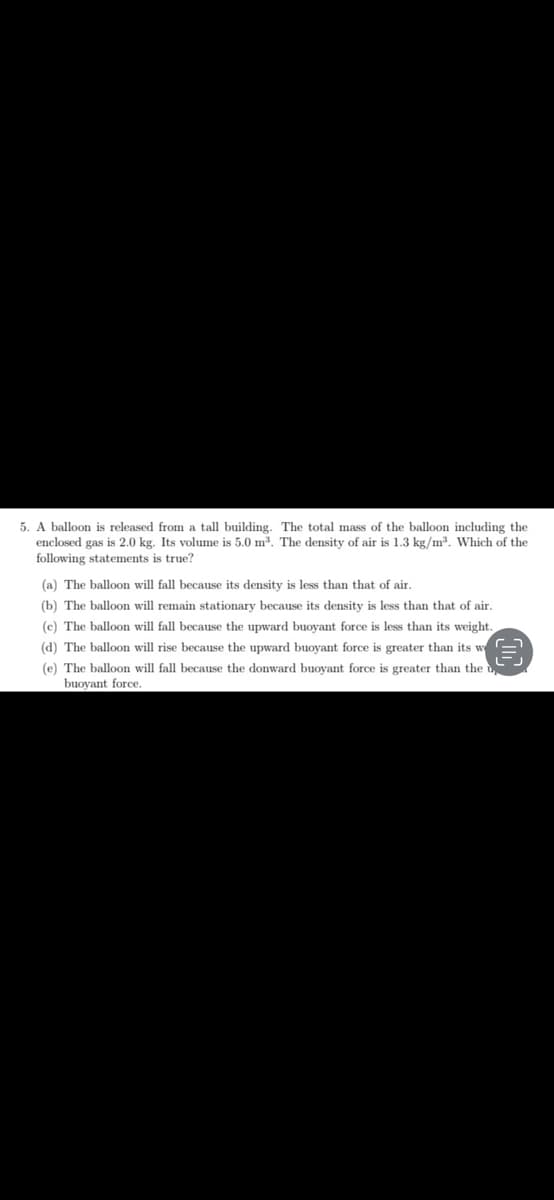5. A balloon is released from a tall building. The total mass of the balloon including the enclosed gas is 2.0 kg. Its volume is 5.0 m². The density of air is 1.3 kg/m³. Which of the following statements is true? (a) The balloon will fall because its density is less than that of air. (b) The balloon will remain stationary because its density is less than that of air. (e) The balloon will fall because the upward buoyant force is less than its weight. (d) The balloon will rise because the upward buoyant force is greater than its w (e) The balloon will fall because the donward buoyant force is greater than the u buoyant force. OC
Fluid Pressure
The term fluid pressure is coined as, the measurement of the force per unit area of a given surface of a closed container. It is a branch of physics that helps to study the properties of fluid under various conditions of force.
Gauge Pressure
Pressure is the physical force acting per unit area on a body; the applied force is perpendicular to the surface of the object per unit area. The air around us at sea level exerts a pressure (atmospheric pressure) of about 14.7 psi but this doesn’t seem to bother anyone as the bodily fluids are constantly pushing outwards with the same force but if one swims down into the ocean a few feet below the surface one can notice the difference, there is increased pressure on the eardrum, this is due to an increase in hydrostatic pressure.

Trending now
This is a popular solution!
Step by step
Solved in 2 steps









